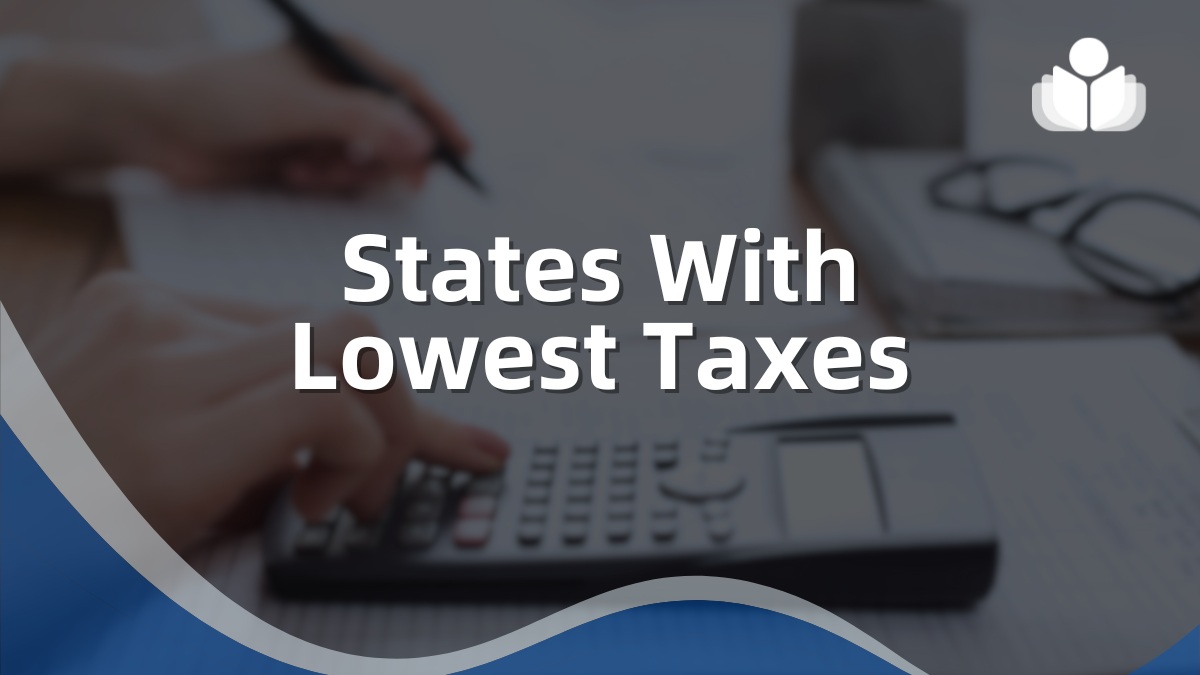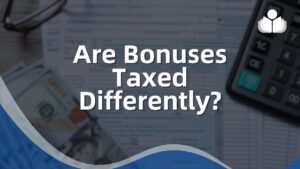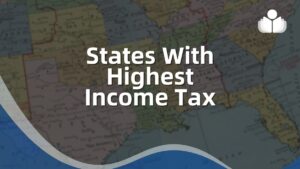Understanding state taxes is crucial for individuals and businesses, as taxes can significantly impact financial well-being. Whether planning to relocate, start a business, or simply optimize one’s finances, knowing which states offer the lowest tax rates is critical.
Each state has its unique tax structure, from income tax to sales, property, and corporate taxes. This article explores the states with the lowest taxes, helping you identify where to save the most on various tax categories and how these low-tax states may benefit your financial goals.
Factors That Affect State Tax Burden
The state tax burden is determined by various types of taxes, including income tax, a percentage of residents’ earnings: sales tax, applied to purchases, and property tax, based on the value of homes and land. Some states have no income tax but may compensate with higher sales or property taxes.
Excise taxes, levied on specific goods like gasoline, tobacco, or alcohol, can also impact a state’s overall tax burden. Corporate taxes affect businesses. States vary in how they structure these taxes, and factors like government revenue needs and population density contribute to different tax strategies, resulting in varying overall tax burdens.
States With No Income Tax
Several states, including Florida, Texas, and Wyoming, don’t levy a personal income tax, making them attractive to individuals seeking to maximize their take-home pay. These states offer significant tax savings, especially for high earners and retirees.
Living in a no-income-tax state often comes with trade-offs. These states may rely more heavily on higher sales or property taxes to compensate for the lost revenue. For example, states like Texas have higher property taxes to fund public services. While the absence of income tax is a clear financial advantage, it’s essential to consider other taxes and the overall cost of living before making a move.
States With the Lowest Sales Tax
Several states stand out for having the lowest sales tax rates, including Oregon, Montana, New Hampshire, and Delaware, which impose no state sales tax. Other states, such as Colorado and Missouri, have relatively low statewide sales tax rates of around 2.9% and 4.2%, respectively.
Lower sales taxes can significantly reduce the cost of goods and services, making everyday purchases like groceries, clothing, and household items more affordable. This benefit impacts families and individuals on tight budgets, helping them stretch their money further.
Some states with low statewide sales tax rates may allow local governments to impose additional sales taxes. For instance, Alabama has a low base rate but higher local taxes in certain cities, which can lead to regional variations in the overall tax burden. Understanding state and local sales taxes is vital to evaluating the impact on daily living costs.
States With the Lowest Property Taxes
Some states with the lowest effective property tax rates include Hawaii, Alabama, and Louisiana. Hawaii has the lowest rate due to high property values but low tax percentages. Alabama and Louisiana offer residents significantly lower property tax rates than other states, making them attractive for homeowners and real estate investors.
Property taxes are typically assessed based on the value of the property and the local tax rate. They are an essential factor for homeowners as they impact long-term housing affordability. Low property taxes can improve profitability for real estate investors by reducing annual ownership costs, which is especially helpful in rental or commercial properties.
States With Low Corporate Taxes
Several states offer favorable corporate tax rates that attract businesses and promote economic growth. South Dakota and Wyoming stand out with no corporate income tax, making them highly appealing for companies seeking to minimize tax burdens.
Nevada also draws companies due to its lack of corporate income tax and other business-friendly policies. Texas and Washington have no corporate income tax but levy a gross receipts tax, which may still result in lower overall tax burdens for businesses. These low-tax environments help attract businesses, foster job creation, and drive economic expansion by reducing operational costs and improving company profitability.
States With Low Taxes for High-Income Earners
Several states have favorable tax policies for high-income earners, such as offering flat income tax rates or no additional tax brackets. States like Tennessee, New Hampshire, and Texas stand out for not taxing income or capital gains, making them attractive for high-net-worth individuals. These policies allow wealthy residents to keep a more significant portion of their income, especially compared to states with progressive tax structures, where tax rates increase with higher earnings.
By minimizing income tax, these states can attract affluent individuals seeking to reduce their overall tax burden while maintaining a high standard of living. This tax advantage is often significant for retirees, entrepreneurs, and professionals with substantial earnings.
States With Tax Incentives for New Residents
Several states offer tax incentives to attract new residents, aiming to boost their population and stimulate local economies. These incentives can include tax rebates, deductions for relocation expenses, and exemptions on certain types of income. For example, some states offer no state income tax for the first few years or provide credits for purchasing a home.
Such incentives can significantly reduce the overall tax burden, making relocating more affordable for individuals or families. However, when considering a move, weighing these benefits against factors like the cost of living, property values, and the availability of services is essential. These incentives can lower living costs but may come with trade-offs regarding infrastructure or state services.
Additional Considerations: Excise Taxes, Fees, and Other State Taxes
Besides income, sales, and property taxes, residents are also subject to various other taxes and fees that impact their overall tax burden. Excise taxes are commonly levied on goods like gasoline, tobacco, and alcohol, varying significantly from state to state. For example, some states, like Alaska, have relatively low gas taxes, making driving cheaper, while others, like California, impose higher excise taxes on fuel.
Vehicle registration fees also contribute to the overall tax burden, with states like Montana offering relatively low fees while states like California charge higher amounts. States like New Hampshire and Delaware offer relief by having no sales or excise taxes on certain goods. Understanding these additional taxes and how they differ across states can help residents better assess the actual cost of living in a particular area.
Pros & Cons of Living in Low-Tax States
Pros
- Lower cost of living due to reduced tax burden
- More disposable income for individuals and businesses
- Attractive for businesses with favorable corporate tax rates
- No state income tax in some states, increasing take-home pay
- Popular for retirees due to exemptions on retirement income and Social Security benefits
Cons
- Reduced government services like public transportation, healthcare, and education
- Under-funded infrastructure, leading to poorer road quality and public facilities
- Higher property or sales taxes to compensate for no income tax
- Potential for higher fees, like vehicle registration, tolls, or excise taxes
Tax-Friendly States for Retirees
Several states are desirable for retirees due to their tax policies. States like Florida, Tennessee, Nevada, and South Dakota don’t tax Social Security benefits or retirement income, making them ideal for retirees seeking to maximize their revenue. Wyoming and Alaska also offer no income tax on retirement funds, further enhancing their appeal.
Regarding property taxes, states like Alabama and South Carolina offer relatively low property tax rates, helping retirees save on homeownership costs. States such as Florida and Nevada have no estate or inheritance taxes, allowing retirees to pass on wealth to heirs without additional tax burdens. These states provide financial advantages that can make retirement more affordable and comfortable.
How to Choose the Right State for Low Taxes
Several factors should be considered when choosing a state for its tax benefits. Your income level plays a crucial role, as states without income tax can provide significant savings for high earners. If you’re a homeowner, focusing on states with low property taxes is critical to minimizing housing costs. For business owners, states with low or no corporate taxes can offer substantial financial advantages.
It’s essential to weigh the overall cost of living and tax rates. While a state may have low taxes, higher living expenses such as housing, uses, or healthcare can offset those savings. Consider the quality of state services, such as education, healthcare, and infrastructure, as low-tax states may offer reduced public services.
Conclusion
Various factors, including income, sales, and property taxes, must be considered when evaluating states with the lowest taxes. While states with no income tax can be appealing, they may offset this with higher sales or property taxes.
Factors such as the overall cost of living, quality of services, and infrastructure should also be considered. Balancing tax savings with your lifestyle and financial goals is crucial to making an informed decision. Ultimately, the best state for you will depend on your unique financial situation and priorities.
 Sections of this topic
Sections of this topic
















